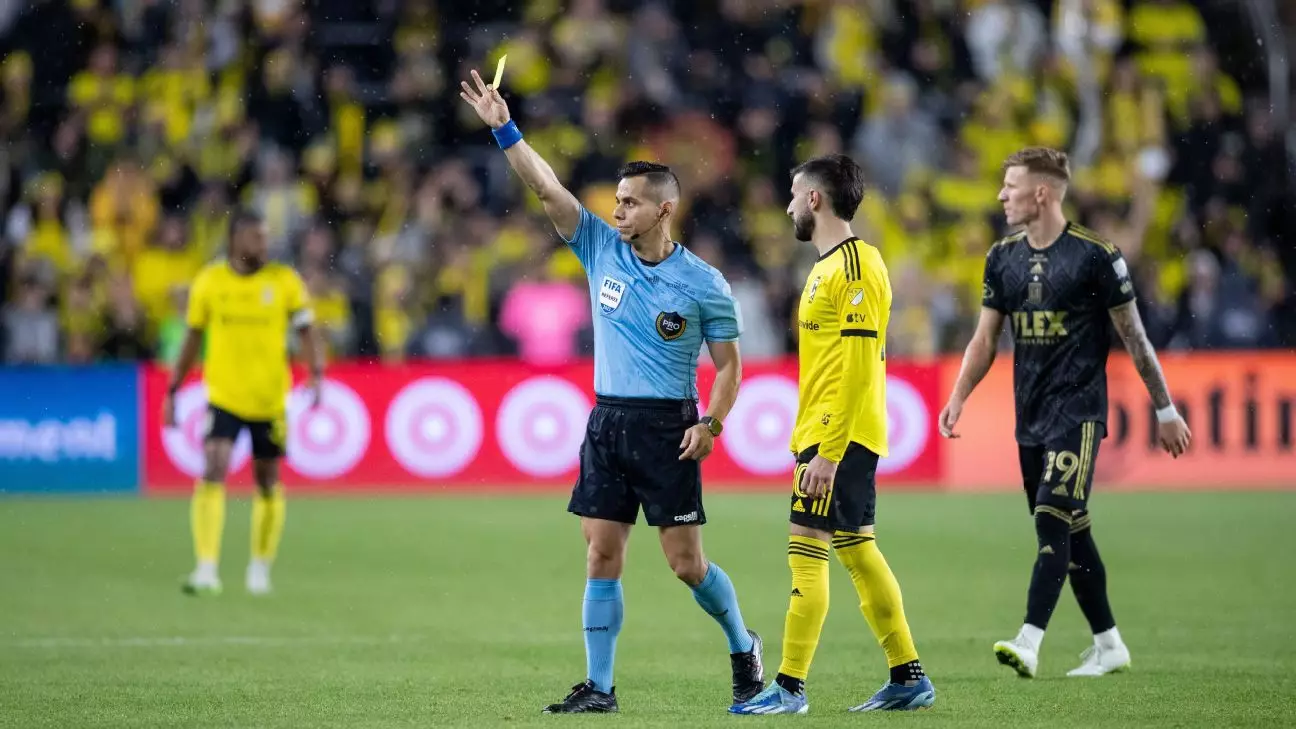The recent rejection of a proposed collective bargaining agreement by the Professional Soccer Referees Association (PSRA) has sparked controversy within the world of professional soccer. Around 98% of the union’s members participated in the vote, with an overwhelming 95.8% voting against ratification. This decision led to the Professional Referees Organization (PRO) announcing a lockout of the referees, starting at midnight ET on Saturday, and the utilization of replacement officials for the upcoming season.
Peter Manikowski, president of PSRA, cited the increasing demands placed on referees both mentally and physically due to the rapid growth of Major League Soccer (MLS) as a key factor in the rejection of the proposed agreement. He highlighted the need for fair compensation and improvements in travel, scheduling, and other quality-of-life issues to ensure that referees can continue officiating at the highest level demanded by the sport. The rejection was driven by concerns over the compensation and benefits offered by PRO, as well as the lack of enhancements in various aspects vital for the well-being of referees.
While PRO General Manager Mark Geiger acknowledged the progress made during negotiations, including fair pay increases and addressing non-economic concerns raised by the PSRA, a significant point of disagreement was the rejection of a no strike/no lockout agreement. Manikowski deemed this offer as a “poison pill” for union membership, as it included demands such as accepting no raises for 2024. With the rejection of this proposal and the PSRA’s authorization of a potential strike, the 2024 season faces significant risks, leading to the implementation of a lockout by PRO.
The imminent lockout and the utilization of replacement officials come at a crucial time, with the MLS regular season set to kick off soon. The uncertainty surrounding the labor dispute threatens to disrupt the smooth functioning of matches and raise concerns about the quality of officiating in games. The expiration of the previous collective bargaining agreement on January 15 has only added to the complexity of the situation, making it imperative for both parties to reach a resolution promptly.
Despite reaching a tentative agreement with PRO, the PSRA’s decision to reject the offer and file a second unfair labor practice charge against the organization suggests that the two sides remain far apart on key issues. The allegations of regressive bargaining and violations of the National Labor Relations Act further complicate the negotiations, indicating a lack of trust and cooperation between the PSRA and PRO. These legal actions could prolong the resolution of the dispute and have lasting implications on the relationship between the parties involved.
The labor dispute between the Professional Soccer Referees Association and the Professional Referees Organization underscores the complexities and challenges associated with collective bargaining in professional sports. The rejection of the proposed agreement, the ensuing lockout, and the filing of unfair labor practice charges reflect the deep-seated issues regarding compensation, benefits, and working conditions faced by referees in the ever-evolving landscape of professional soccer. As the 2024 season approaches, finding a mutually acceptable solution is imperative to ensure the smooth operation of matches and maintain the integrity of the game.


Leave a Reply